Description
My Miscellaneous Muse: Poem Pastiches & Whimsical Words
by Ralph La Rosa
Ralph La Rosa, as the title indicates, has created a delightful collection of poetry pastiches and whimsical words-of-play, including playful sonnets, weird lists, clerihews, proverbs and converbs, tailgating couplets, strange rhymes, and auto-epitaphs of famous poets.
Enjoy La Rosa’s celebration and unique spin of the classics, as he pays homage to Dickinson, Whitman, Yeats, Frost, Plath, Keats, Pound, Williams and more.
I have eaten
the bacon
that was in
the fridge …
Readers will enjoy the poet’s resurrection of famous poems as he uses them as springboards to tackle today’s pop culture and politics. And to wrap it up, he ends with a brief story about Chinese and American writers, including Allen Ginsberg and Annie Dillard, whom La Rosa leads through Disneyland.
About the Author
His youth inspired by a Danforth Leadership Award, Ralph La Rosa later earned a Ford Foundation grant, a National Endowment for the Humanities Fellowship, and a Fulbright Lectureship to the Soviet Union. He earned degrees in English and American Literature at the University of Michigan, Ann Arbor and the University of Wisconsin, Madison. A teaching career included appointments at the University of Wisconsin, Madison, UCLA, Tbilisi State University in the Soviet Georgian Republic (the first extensive appointment allowed outside of Moscow), and Northwestern University, Evanston. After his assignment to the USSR, he was invited to teach in Budapest and Munich but was unable to accept the offers. In recent years, he taught at several colleges and universities in California.
La Rosa’s publications include critical prose on Ralph Waldo Emerson and Henry David Thoreau in American Literature, Critical Essays on Ralph Waldo Emerson, Sewanee Review, Wisconsin Monograph Series, and elsewhere. His work for film includes two scripts on Sam Rodia’s Towers in Watts, California: one sold to KCET Los Angeles and another, Spires to the Sun, sponsored by the California Council for the Humanities and aired by KCET. For Norman Cousins, La Rosa also coordinated, with Robert Rees, the Chinese/American Writers conferences held at UCLA and Beijing University. Now focusing on poetry, La Rosa has been nominated for the Pushcart Prize and has published a chapbook, Sonnet Stanzas (Kelsay Books), and full-length Ghost Trees (Kelsay Books).
Sample Pastiche
We’re Not Cool
~After Gwendolyn Brooks, “We Real Cool”
Seven old men at the
Adios Convalescent Home
We’re not cool. We
Now drool. We
Eat early. We
Act squirrely. We
Stay up late. We
Fight fate. We
Watch porn. We
Are reborn.
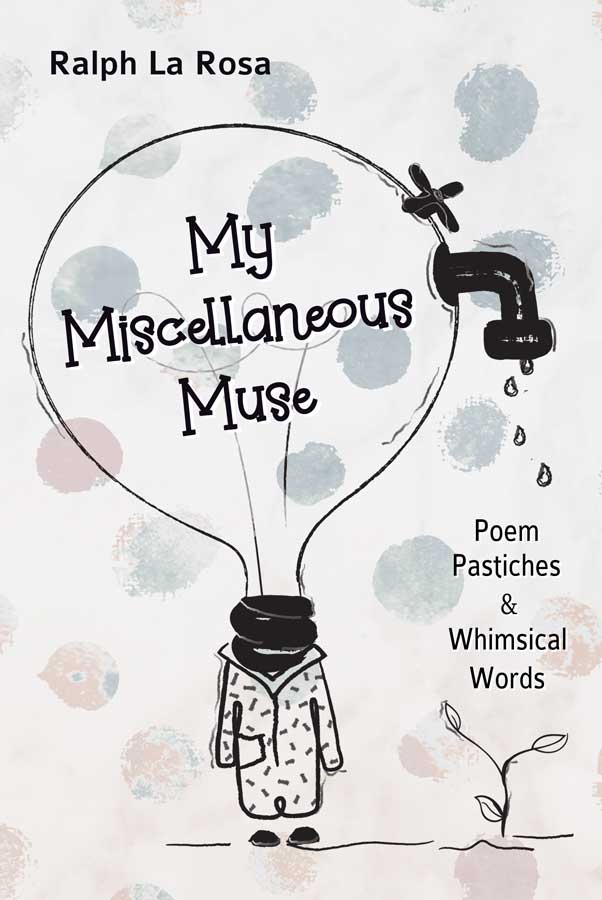
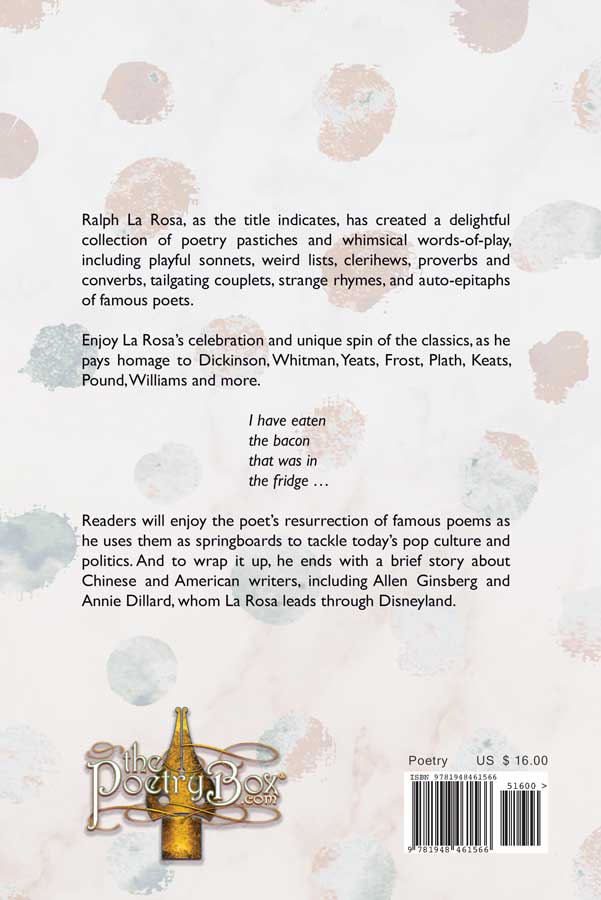
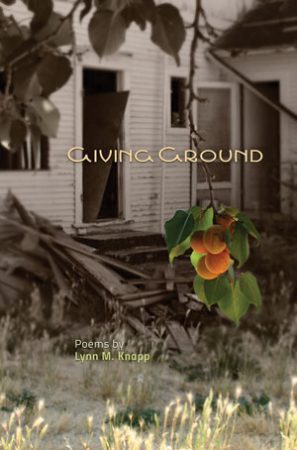
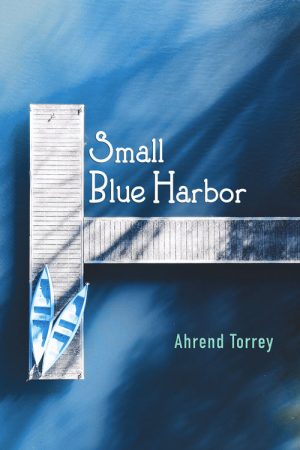

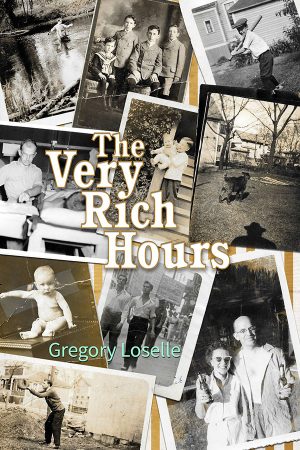
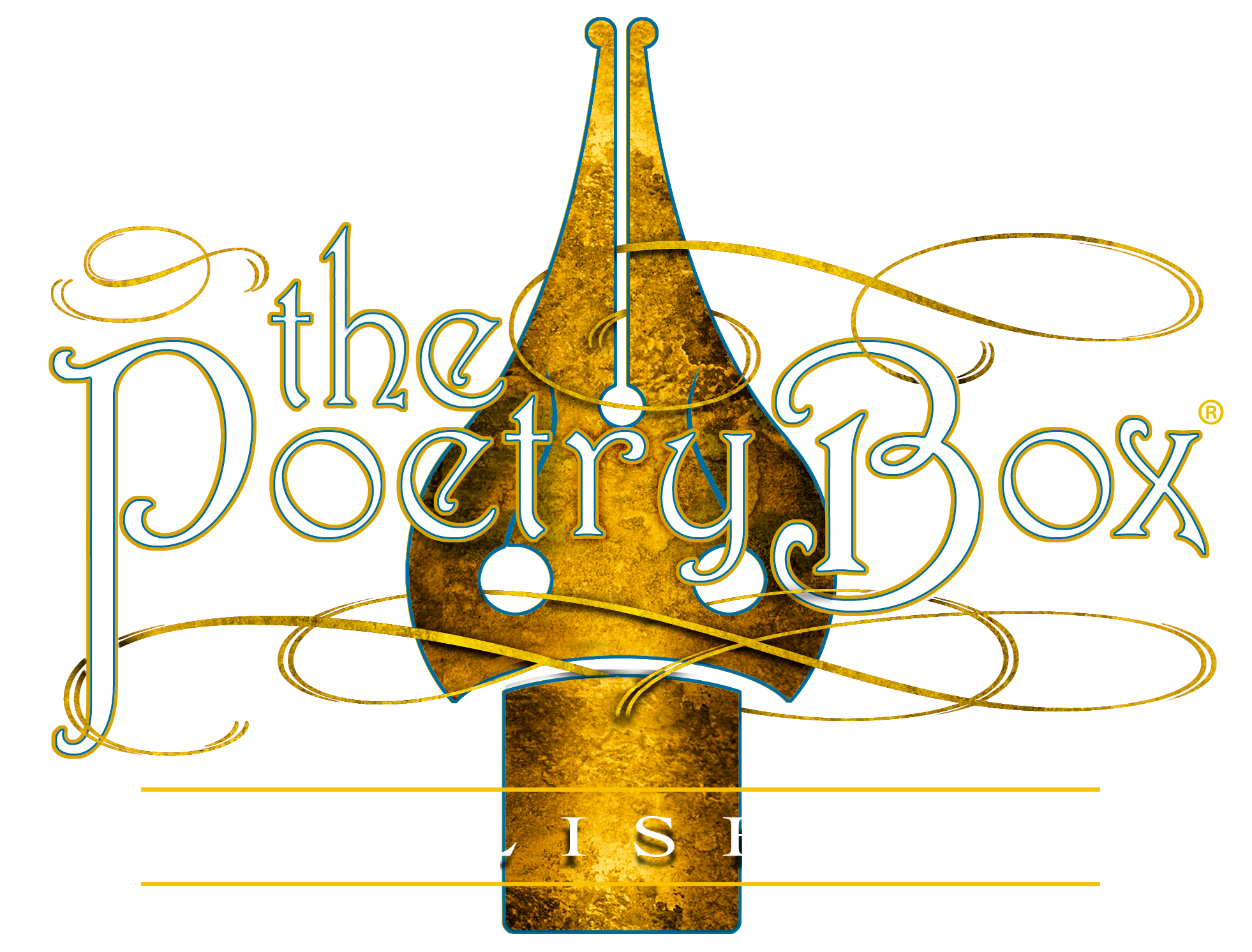
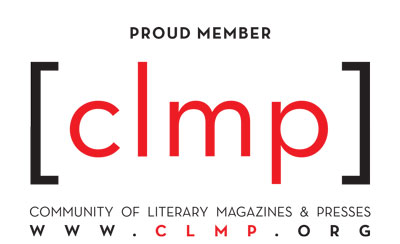

Jean Harkin –
I am in awe of this author’s creativity and his ability to absorb the styles of various poets, and thus to create pastiches of their poetry that honors them and entertains the reader. In the pastiche section, the author imitates the poets’ styles, structures of poems, and often uses some of the poets’ actual words, although in a different context. An example:
LaRosa wrote: “Because I would not stop for Death–One day she kidnapped me–A Ferrari held the two of us. . .”
Emily Dickinson wrote: “Because I could not stop for Death, He kindly stopped for me– The carriage held but just ourselves. . .”
As a bow to John Keats, LaRosa titles a poem “On Last Looking into Hefner’s Playboy,” after Keats’s “On First Looking into Chapman’s Homer.”
One of my favorites was inspired not only by Robert Frost but by Charles Schulz’s “Peanuts” comic strip: “I have been one acquainted with the kite (rather than Frost’s “Night”). . . Kite-Eating Trees will always bite for spite!”
Another bow to Robert Frost: “Some say my itch is caused by skeeters, Some say by lice.” LaRosa’s poem has the same rhythm and number of lines as Frost’s famous “Fire and Ice” poem.
In other sections of the book, he imagines a correspondence between Emily Dickinson and Walt Whitman, in their typical poetic voices. He writes poems finding rhymes for un-rhyming words. He invents proverbs and “converbs,”– “What’s bad for the goose is good for the sauce.” Then he invents second lines: “I wandered lonely as a cloud (Wordsworth)– Then passed my water on a crowd.” There are four-line epitaphs, supposedly written by and in the style of ten famous poets.
And throughout the book there is sometimes a political jab, such as in homage to W.C. Williams’s “The Red Wheelbarrow”: ” so much depends– on– a golden hair– piece. . .”
I enjoyed the styles, the creative adaptations, and the poetic knowledge behind the whimsy (and occasional seriousness) in this book.